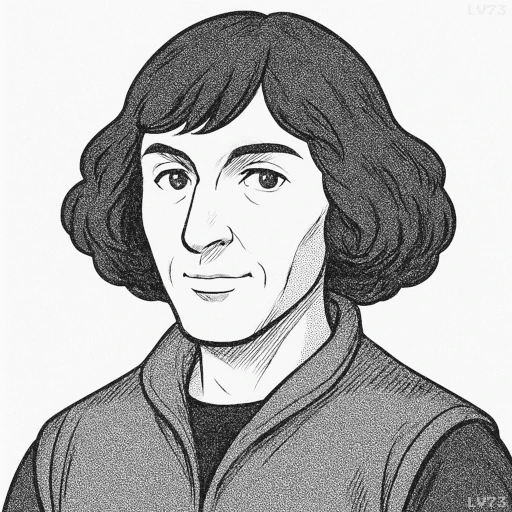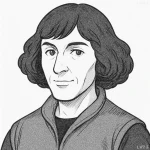“Yet if anyone believes that the earth rotates, surely he will hold that its motion is natural, not violent.”

- February 19, 1473 – May 24, 1543
- Polish
- Astronomer, Mathematician, Founder of the Heliocentric Theory
table of contents
Quote
“Yet if anyone believes that the earth rotates, surely he will hold that its motion is natural, not violent.”
Explanation
Copernicus defends the plausibility of Earth’s rotation by framing it as a natural, inherent movement rather than a forced or unnatural one. In his time, Aristotelian physics dominated, teaching that motion could only be “natural” for heavenly bodies if it conformed to their supposed nature. Earth, considered heavy and imperfect, was thought to be stationary by its very essence. Copernicus challenges this by suggesting that Earth’s rotation is not contrary to nature, but part of its true nature, and thus should not be dismissed as implausible.
This idea is significant because it helps shift the philosophical groundwork necessary for accepting the heliocentric model. If Earth’s rotation can be understood as “natural”, then it no longer contradicts classical physics. This subtle reframing allows Copernicus to argue that what appears radical may actually be harmonious with the deeper logic of the universe. His work thus begins to loosen the rigid categories of Aristotelian cosmology, paving the way for the scientific revolutions to come.
In a modern sense, this quote illustrates how changing definitions and frameworks can make once-unthinkable ideas reasonable. Just as Copernicus reclassified Earth’s motion to make it acceptable, modern thinkers often must redefine terms or assumptions to gain acceptance for new models—whether in science, economics, or social theory. His words encourage us to re-examine what we call “natural”, recognizing that such judgments often reflect inherited beliefs more than objective truth.
Would you like to share your impressions or related stories about this quote in the comments section?

